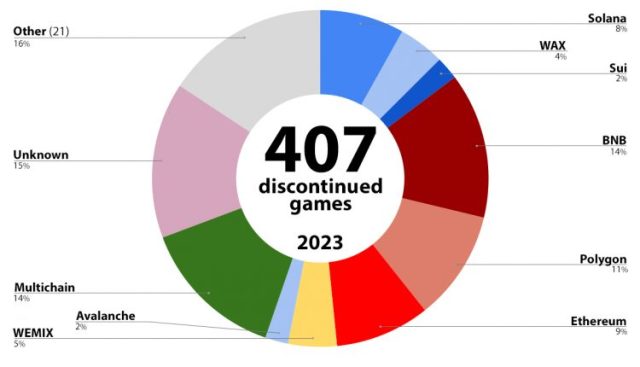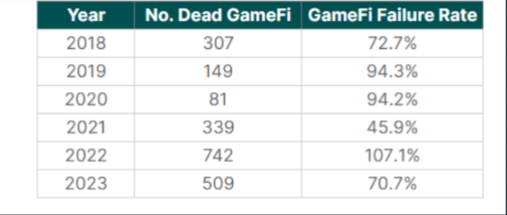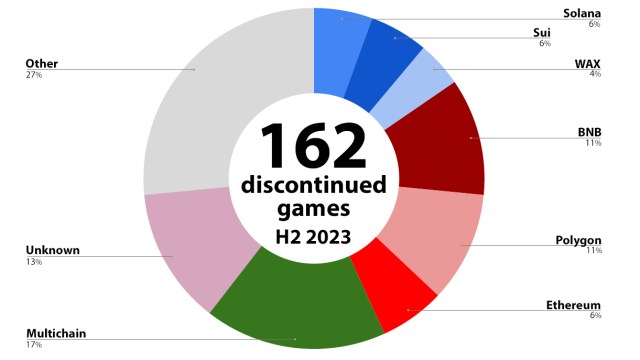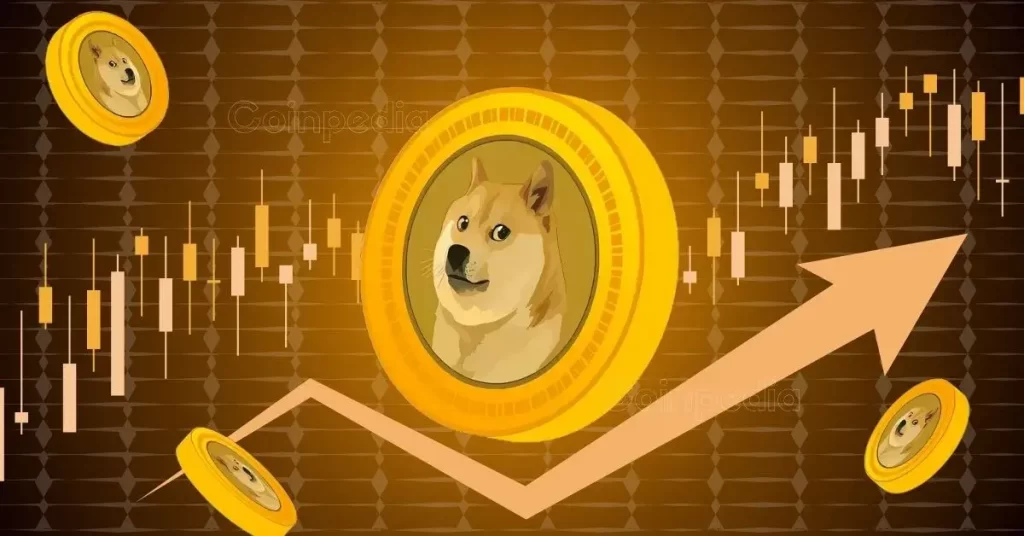ARTICLE AD BOX
The allure of play-to-earn and in-game ownership fueled a recent boom in blockchain games, but a new report casts a chilling light on the sector’s sustainability. Out of 1,318 blockchain-based games launched since 2021, a staggering 407, over 30%, have already been discontinued or abandoned.
This stark statistic, compiled by BlockchainGamer.biz, paints a picture of an industry grappling with fundamental challenges. Smaller, underfunded projects appear particularly vulnerable, often vanishing silently without any official announcement.
Are Blockchain Games Going Extinct? The Main Culprit
Funding constraints and evolving market conditions are cited as the primary culprits, suggesting that building a successful blockchain game requires much more than just buzzwords and tokenomics.
The report spanning 2021-2023 highlights a concerning trend in the latter half of 2023. Multichain games, utilizing multiple blockchain networks, experienced a 17% discontinuation rate. Single-chain projects were not exempt, with Binance’s BNB Chain leading with an 11% abandonment rate, followed by Polygon at 10%.

Ethereum, Sui, and Solana also faced notable drop-offs. These findings underscore challenges in blockchain gaming sustainability, prompting a need for a deeper exploration of contributing factors such as technological hurdles, market dynamics, and evolving user preferences. Stakeholders must adapt strategies to ensure resilience in the rapidly changing decentralized technology landscape.
“High-profile casualties” like Goals, a game that reportedly raised millions before backtracking on its blockchain integration, further highlight the dynamic nature of the industry. This shift could indicate a maturing sector prioritizing core gameplay and user experience over tokenized elements.
Rough Road Ahead For Blockchain Games
According to Bitcoinist citing research from bitcoin price tracker Coingecko, 75% of GameFi projects have been unsuccessful. This downturn exemplifies the challenges faced by projects that aim to integrate these innovative concepts with gaming and decentralized currency. In addition, it highlights the challenges that this intersection presents.

The data shows that out of 2,817 games that came out between 2018 and 2023, only 690 maintain a respectable number of active players. If the number of active users for a Web3 game drops by 99% or more from its peak, CoinGecko will label it a “failed” game.
The potential of blockchain technology in enriching gaming experiences remains alluring. Ownership of in-game assets, unique digital economies, and decentralized governance structures are still enticing propositions. However, the current landscape underscores the need for caution and critical analysis.

Questions about long-term sustainability, the true value proposition of blockchain integration, and the ethical implications of play-to-earn mechanics necessitate open discussions and informed approaches.
Looking ahead, the industry must address fundamental issues like funding stability, developer expertise, and chain-specific considerations. A focus on quality gameplay, transparent communication, and responsible implementation of blockchain technology will be crucial for navigating the current turbulence and unlocking the true potential of this emerging frontier.
Only time will tell if blockchain games can overcome these challenges and establish themselves as a viable and enriching force in the broader gaming landscape. However, the lessons learned from this initial phase of experimentation and adaptation will undoubtedly shape the future of this intriguing, albeit turbulent, segment of the interactive entertainment world.
Featured image from Freepik
.png)
 11 months ago
7
11 months ago
7








 English (US)
English (US)